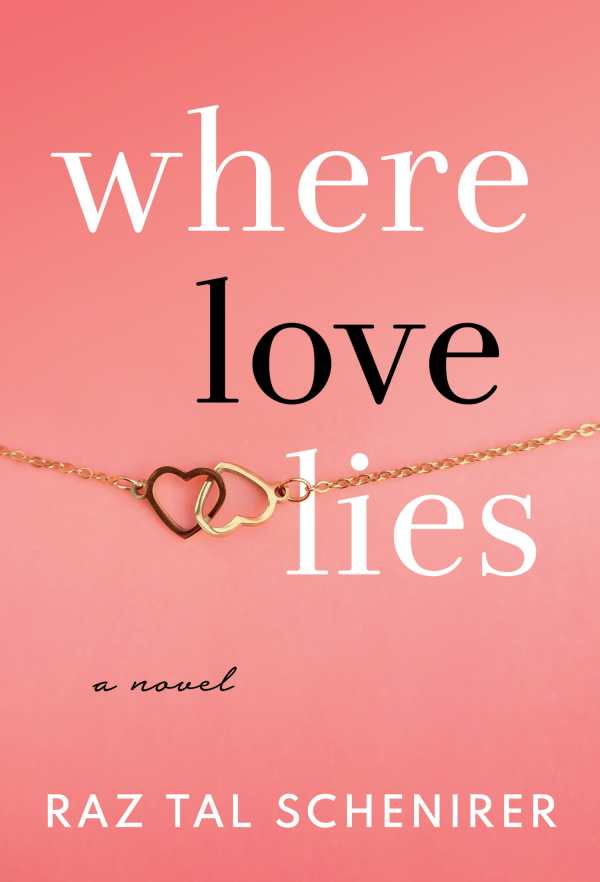Where Love Lies
With the support of others, an abused woman comes into her own in the revealing bildungsroman Where Love Lies.
A loving family, financial privilege, fashionable clothes, and academic success offer no protection against insecurity and a lover’s manipulation in Raz Tal Schenirer’s novel Where Love Lies, about finding love and finding oneself.
Ella, who has a strong sense of self, plans for her freshman year at Columbia University. She feels close to her parents, who moved to the United States when she was a toddler. Her father, a plastic surgeon, calls her “princess” and buys her whatever she wants. When a Tel Aviv hospital hires him, though, her family returns to Israel. Ella defers college and enters the army.
The night before Ella leaves for basic training, she meets handsome Liam, toward whom she feels an intense attraction. At boot camp she gets a surprise: Liam is her commanding officer. She makes sure their flirtation continues. Hints of his aggression surface as their relationship builds. After a physical altercation, she breaks it off, beginning the first of multiple cycles of romance and abuse.
Ellie’s English narration includes a few phrases in transliterated Hebrew, resulting in the flavor of her Israeli heritage. The book’s two sections, titled “Princess” and “Prince,” correspond to her time in Israel and New York City. “Princess” refers to Ella’s father’s name for her yet also evokes entitlement. “Prince” opens with a class discussion of The Prince, Niccolò Machiavelli’s book on holding power, and characterizes Liam’s control of Ella. Most of the first section misdirects as a romance novel or a love-as-redemption story because the few hints at violence are overwhelmed by journalesque coverage of their mutual attraction, Goddess Rules, pink satin sheets, and secret hookups on base.
In the second half of the book, other than class discussions and coffees with a friend, there are only Liam’s aggression and Ella’s sense of failure: he makes belittling comments, demands that she wear certain clothes, name-calls, and bites, drawing blood. Ella withdraws from her family and friends and drops out of college. She starves and binges, erasing herself. Further, Liam is not her only abuser: the last third of the book is dense in its coverage of the cyclical nature of abuse, resulting in an overwhelming sense that the characters will never change. Still, the characterizations are memorable, though other people are somewhat limited to roles marked by their support of Ella: two people at Ella’s college, a teacher and another woman, affirm her personhood, and they are among the few flickers of hope in the book’s later pages, where Ella recalibrates her ideas of womanhood, friendship, and love.
In the often frightening coming-of-age novel Where Love Lies, a woman comes to the gradual realization that she has agency despite the challenges she faces.
Reviewed by
Lynne Jensen Lampe
Disclosure: This article is not an endorsement, but a review. The publisher of this book provided free copies of the book and paid a small fee to have their book reviewed by a professional reviewer. Foreword Reviews and Clarion Reviews make no guarantee that the publisher will receive a positive review. Foreword Magazine, Inc. is disclosing this in accordance with the Federal Trade Commission’s 16 CFR, Part 255.

